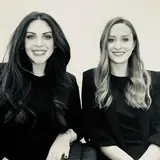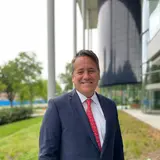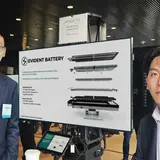Startup Stories: Tracking Infant Development in Real Time
A conversation with Linda Craib ’10, whose startup gathers infant mental health and early childhood development data through an iPhone app and shares it with healthcare providers.

In this series, Karen Guzman talks to student and alumni entrepreneurs about how they are making an impact with their startups.
Venture: Alea Diagnostics monitors infant mental health and early child development progression in real time with an app called Lorestry. Information is mapped to a health language library, so it can be shared with healthcare providers, early intervention teams, and researchers on an international scale.
Founder: Linda Craib ’10
What was the moment when you had the idea for this startup?
My youngest daughter was diagnosed with autism in the mid-1990s. My first grandson was diagnosed with autism while I was at Yale SOM. I recognized that we needed a way to empower parents with data to accelerate access to care. Alea Diagnostics—named after my daughter—won Yale SOM’s Henry F. McCance Entrepreneurial Award just before I graduated.
What’s the problem you’re trying to solve or the gap that you’re trying to fill?
For over half a century, the nation has been trying to address the need to provide mental and developmental care for infants and children as early as possible. One in five children (20%) have a developmental or learning disability, but less than 3% ever get a referral to life-changing early intervention. On average there is a three-to-five-year delay from the time a parent first reports concerns to a provider and when the child receives a diagnosis and care.
Last year the CDC and the American Academy of Pediatrics (AAP) called for the development of new tools designed for child development surveillance monitoring, which is our core business. This year the AAP published a framework to address neurodevelopmental monitoring of the growing number of babies with prematurity and various types of medical complexities—congenital conditions, rare disease, genetic disorders.
What was the most important resource Yale SOM contributed to your startup?
Yale SOM was life-changing. Every professor and all of my classmates shaped my views about the impact we can individually and collectively have on the lives of others. I came away from Yale SOM with a sense of duty to build a business that can do good, and to take what I learned to positively shape society. In particular, Dean Stan Garstka has been a steadfast mentor and friend. My 2010 classmate Catherine Everett, M.D., has been a friend since day one at Yale SOM. She has been a trusted advisor since I first presented my idea to classmates.
What’s the biggest milestone your startup has hit since graduation?
Being told that the product I had designed and developed was the first consumer-facing product in the world to map personal observations to a recognized, single, global health language. I know we’re defining and driving change in children’s developmental care for the better by empowering parents to advocate with data in their own best interests, and in the interests of their child.



